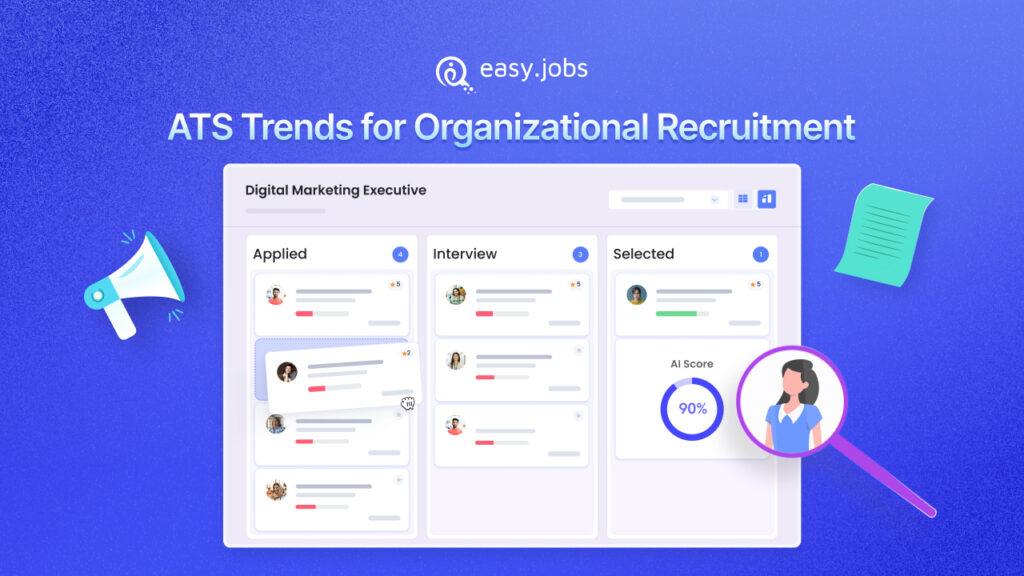In today’s fast-paced and dynamic business environment, companies are often faced with tough decisions when it comes to managing their workforce. One such decision is whether to implement a hiring freeze, which is a temporary pause in hiring new faces that can be triggered by a variety of factors. In this blog, you can explore the reasons for a hiring freeze, its effects on the company and its employees, and the potential benefits of such a decision.

What Is Hiring Freeze In A Company?
A hiring freeze occurs when a company temporarily stops hiring new employees for a specific department or the entire organization. While a hiring freeze can be a challenging time for both employers and job seekers, it can also offer several benefits in the long run. Let’s discuss the reasons why a company implements a hiring freeze, the effects it has on the workforce, and the benefits it can provide.
❓A hiring freeze can occur for various reasons such as budget constraints, organizational restructuring, or economic uncertainty. It’s a temporary measure taken to control costs and ensure the stability of the company’s financial position.
✨ It creates several effects on a company, including increased workload for existing employees, decreased morale, and reduced productivity. It can also result in missed opportunities for growth and innovation, as well as difficulty in filling critical positions.
🔯 Implementing a hiring freeze can help a company save money, maintain financial stability, and prevent layoffs. It can also encourage organizational restructuring and create opportunities for process optimization and resource reallocation.
Reasons Behind A Hiring Freeze
There are several reasons why companies may choose to implement a hiring freeze such as budget constraints, organizational restructuring, or economic uncertainty. Let’s have a look below to know some of the most common reasons for a hiring freeze.
1. Budget Constraints And Cost-Cutting Measures
One of the main reasons for a hiring freeze is financial constraints. A company may be facing budget cuts and may not have the resources to support new hires. When a company faces financial difficulties, a hiring freeze may be implemented as a way to reduce expenses. By not bringing on new employees, the company can save money on salaries, benefits, and other costs associated with hiring.
2. Organizational Restructuring And Role Management
Another reason for a hiring freeze is a company restructuring process. If a company is going through a restructuring period, a hiring freeze may be implemented to evaluate current staffing needs and select where new hires are required. During this time, a company may choose to freeze hiring to ensure that its existing employees are in the right roles before adding new ones.
3. Economic Climate And Market Uncertainty
The economic climate and market uncertainty can also result in a hiring freeze. Companies may choose to hold off on hiring new employees until the market stabilizes and their financial projections become clearer. It is a great way to mitigate risk and conserve resources until conditions improve.
4. Merging With Another Company And Acquisition Process
When two companies merge or one company acquires another, a hiring freeze may be implemented. It allows time to evaluate the new organization’s structure and determine where new hires are necessary.
Effects Of Implementing Hiring Freeze

While a hiring freeze can help companies to control costs, maintain financial stability, and evaluate their staffing needs, it can also have several negative consequences on the workforce such as increased workload, decreased morale, and missed growth opportunities. Let’s have a look below to see some of the most common drawbacks of the hiring freeze process.
1. Increase In Workload And Stress, Fall In Productivity
With fewer employees to handle the same amount of work, existing staff may have to take on additional responsibilities, leading to increased workload and stress. Existing employees may feel pressure and stress due to increased workload. It also decreases productivity.
2. Decrease In Morale And Job Satisfaction
The morale of employees can also take a hit as they may feel overworked and undervalued. The feeling of being underestimated and miscalculated during a hiring freeze can lead to decreased morale and job satisfaction.
3. Lack Of Opportunities For Growth
The freeze may also result in a lack of opportunities for career growth and development for employees. If a hiring freeze lasts for an extended period, skills gaps may emerge as new technologies and processes are implemented, and current employees may not have the necessary skills or experience to handle them.
4. Employee Turnover Due To Job Insecurity
The hiring freeze may also lead to job insecurity among employees as they wonder if they will be next to lose their job. If employees feel overworked or undervalued during a hiring freeze, and also feel insecure with their job, they may start to look for employment elsewhere, leading to increased turnover.
Advantages And Benefits Of Hiring Freeze

Though a hiring freeze can be challenging for managers and employees, it can also offer several benefits to the organization, such as reducing overhead costs, improving efficiency, and streamlining business processes. Let’s have a look below to know more about the benefits of hiring freeze.
1. Improved Efficiency With Fewer Employees
A hiring freeze can lead to improved efficiency as employees are given the opportunity to focus on their existing responsibilities. With fewer employees, companies may be forced to streamline processes and find more efficient ways to operate.
2. Increased collaboration And Teamwork
With a smaller staff, employees may have to work together more closely and collaborate on projects outside of their usual job duties. This can create a sense of shared purpose and foster a team-oriented environment, ultimately leading to improved collaboration, stronger relationships, and better outcomes for the organization as a whole.
3. Cost Savings In Business And Organisations
Hiring Freeze helps to save costs as well. By stopping hiring, companies can save costs by not having to recruit and train new employees. They can save money on salaries, benefits, and other costs associated with hiring.
4. Better Resource Allocation And Staffing Decisions
A hiring freeze can also allow a company to better allocate its resources and focus on its core business operations. Also, by taking time to evaluate current staffing needs, companies can make more informed decisions about where new hires are necessary and what skills and experience are required.
Strategic Hiring Freeze: Roadmap To Long-Term Efficiency

A hiring freeze can be a difficult decision for a company to make, but it can also bring about benefits such as cost savings, improved efficiency, and better resource allocation. It’s important for companies to weigh the reasons for a hiring freeze, its effects on both the company and its employees, and the potential benefits before making a decision. With careful consideration and effective communication, a hiring freeze can be a positive step for a company and its employees.
Do you think this blog is helpful? Share your thoughts in the comments box. If you liked this article, then subscribe to our blog and join us on our Facebook community to interact with more people.









